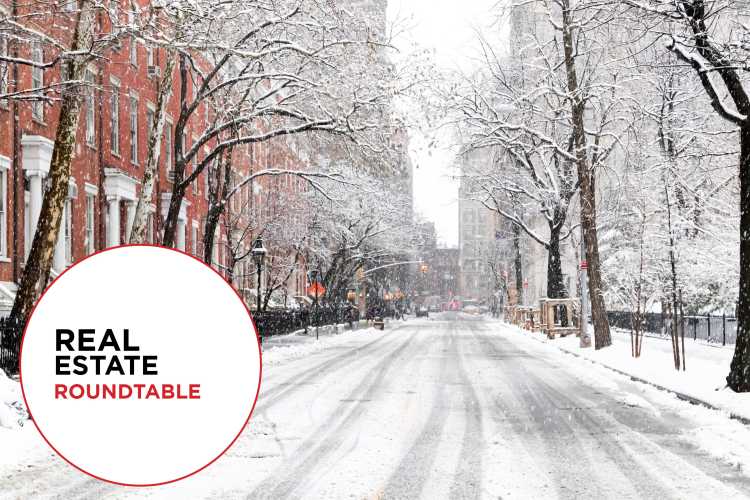In the era of Coronavirus (COVID-19), we are living through both a health and a financial pandemic the likes of which we have never experienced before. Every aspect of everyone’s lives has or will be impacted, including our real estate. Here are five real estate laws that you need to know to get through COVID-19 without being wiped out by this financial pandemic.
Remote (Mail Away) Closings: The President has recommended gatherings to be limited to 10 people. Social distancing is now a regular term in our vocabulary. Closings don’t coincide with this new norm. Imagine sitting in a conference room for hours for your real estate closings with Coronavirus in the air. To avoid catching Coronavirus while transferring your deed, you should insist that your closing be done remotely. Yes, a closing can and should be done remotely. Our law firm just did two remotely and they were great. All documents can be pre-signed and sent through UPS. In fact, the only reason to have physical contact with another human being, incident to your closing, is to have documents notarized because NYS law requires a notary to be in the presence of the signer. Yet, a solution is pending in the NYS Senate. Bill S4352B would permit video notarizations and everyone needs to voice their support for this bill. Contact your representative now and save the real estate industry and your life from Coronavirus.
Real Estate Closing Date: If you are in contract to buy or sell real estate, don’t worry about a quarantine preventing you from closing by the specific date specified in your contract of sale. You will likely be afforded as much time as you need to close the deal, regardless of that date, as a matter of law. Most real estate buy/sell sales contracts in NYS utilize an on or about closing date and that date is rarely, if ever, the actual closing date that the transaction closes. Instead, an on or about date is just used as an estimated date for the parties to be ready to close. However, that estimated can be unilaterally changed by a party to a date certain, called a law date, if their attorney serves a time of the essence notice. However, NYS law instructs that the law date must be set within a reasonable date from the on or about date and reasonableness is determined by the courts with reference to the facts and circumstances of the transaction. Therefore, should you be quarantined, it is extremely unlikely that a NYS judge would ever validate a time of the essence date against you because no time would ever be reasonable until you are excused from the quarantine.
Lease Enforcement: Coronavirus likely won’t get you out of your lease obligations. If a landlord locks the doors to commercial space because of a quarantine, the tenant can likely receive a rent abatement from the courts as the result of this partial eviction unless the lease has non-performance language (force majeure clause) specifically applicable to the situation. The same holds true if a commercial landlord doesn’t provide essential services called for in the lease, like utilities, cleaning, and/or repair. In contrast, a non-paying tenant will likely be evicted and face a back-rent judgment regardless if their non-payment stems from a quarantine or business failure incident to Coronavirus unless their lease contains relevant non-performance language to relieve such tenant from their obligations. So, it all comes down to the lease and you need to know what your lease provides with respect to your rights and obligations before you act.
Forbearance before Foreclosure: If a landlord doesn’t receive rent and, as a result, can’t pay their mortgage, foreclosure proceedings will likely commence upon two missed payments. The same holds true if a homeowner becomes unemployed and can’t pay. Luckily, mortgagors who act quickly can often avoid foreclosure by negotiating a foreclosure workout called a forbearance with their lender. By having your attorney negotiate with your lender before the commencement of foreclosure proceedings, you can generally negotiate reduced or eliminated mortgage payments for several months to get back on your economic feet. After foreclosure proceedings are commenced, the cost/benefit analysis for the lender, who has then hired an attorney and paid court fees, changes drastically and their willingness to work with you is greatly reduced. So, act as soon as your financial issues are known so that you can avoid foreclosure.
Chapter 7, 11 & 13 Bankruptcy: If you are a local restaurateur or merchant and you are suffering from Coronavirus quarantines, bankruptcy may be your only option. While Chapter 7 will eliminate your debts, there are caps on your amount of income to qualify. Additionally, the trustee will seize most of your assets and, as a result, your business will likely be closed for good. However, Chapter 11 or 13 offer options to restructure and stay in business. To qualify for a Chapter 13, you can’t own your business in an LLC or corporation and there are caps on the amount of debt that you can have at the time that you file. Alternatively, a Chapter 11 is available for LLCs and corporations plus it has no cap on debt that qualifies for filing. For small business, sometimes your best way forward is through a fresh start that is offered by bankruptcy.
Andrew M. Lieb, Esq., MPH, is the managing attorney of Lieb at Law P.C. and a contributing writer for Behind the Hedges.






















